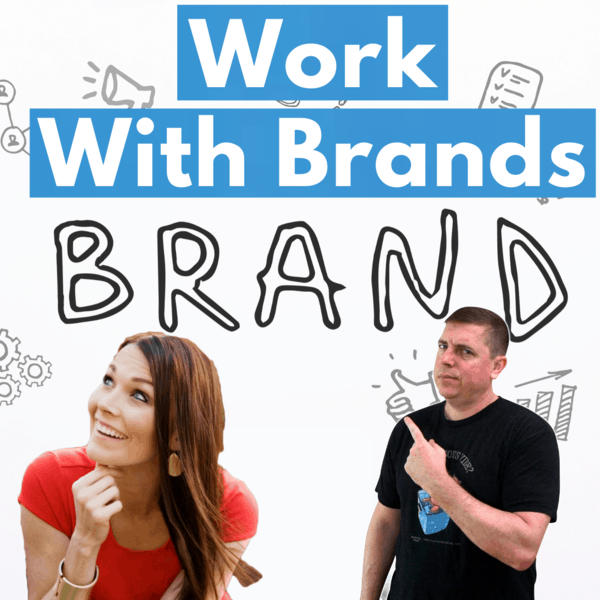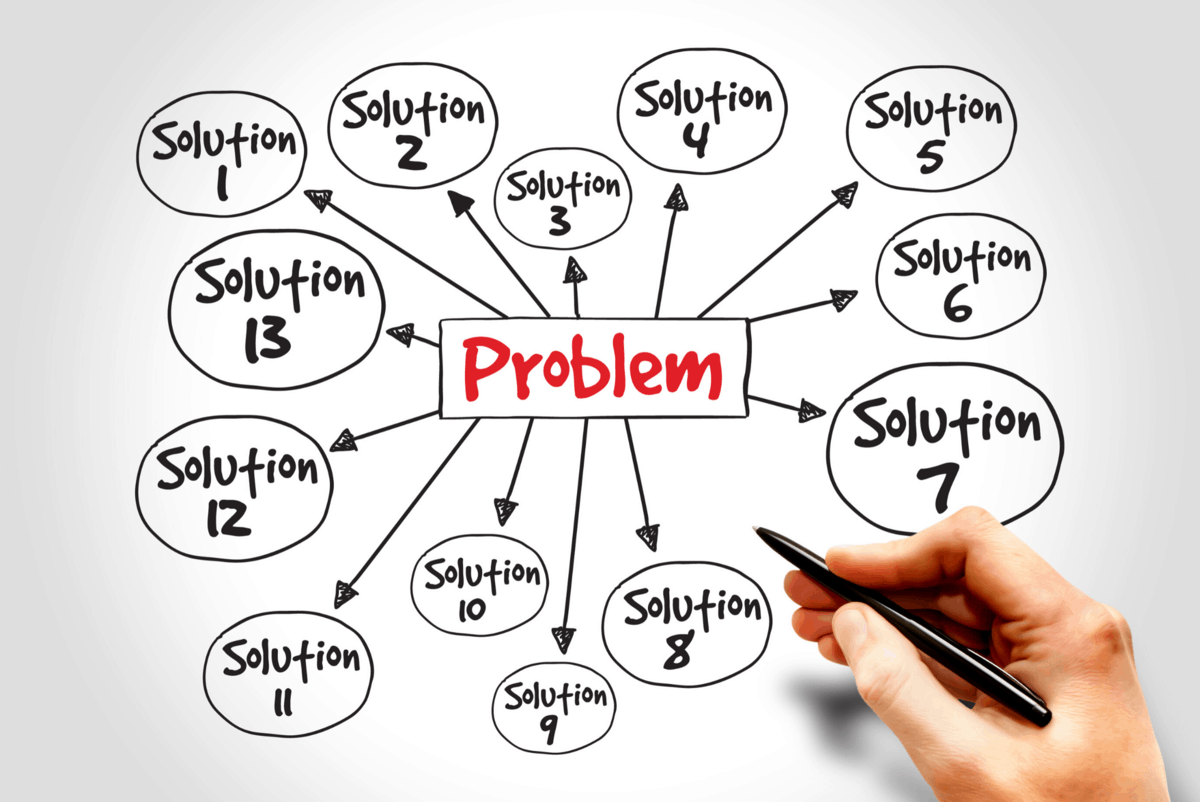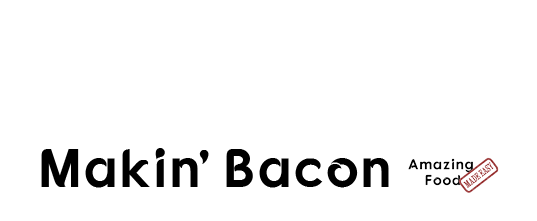 Written by Jason Logsdon
Written by Jason Logsdon
How to Approach Brands for Sponsorships with Kami Kilgore
Click to discover how to serve your Fans and grow your income
Brands can be very important to the success of many different food bloggers. However, it can be really hard to start a conversation with them. Kami is here to help you figure out the best way to talk to these brands and break down those barriers.
In a recent Makin' Bacon podcast episode, I interviewed Kami Kilgore from Everything Food Conference. She's been organizing one of the largest food blogger conferences out there for about 5 years now. She offered a lot of tips for how you can best approach brands and sponsors who are at the conference so you can maximize your odds of success with them. I wanted to share with you part of that interview.
Listen to or Watch the Interview
This episode from the Makin' Bacon Podcast podcast is available on all your favorite podcast platforms including Apple Podcasts, Spotify, Stitcher, Overcast, and Google Podcasts.
The video of the interview is also available on the Makin' Bacon YouTube Channel.
Here's What Kami Kilgore and I Had to Say.
JASON LOGSDON: If an attendee goes to the conference and there's a sponsor or 2 there who they'd really like to work with, what is the best way for them to introduce themselves and start a conversation with them? I know you don't want to just walk up and say "I want to do a sponsored post, here's my card". What's a good way to open up that conversation?

KAMI KILGORE: Thank you for asking that question because this is really important. It's the same process you would with any relationship in any friendship. You want to think with their goals in mind. Whenever I am pitching a brand, my very first question is, "What would be your end goal when you participate in an event like mine?"
Then they tell me all their painful points. Such things as: we just haven't been able to make the right connections with influencers, or influencer marketing hasn't been working for us, or we want to have better networking, or we want to have better brand awareness. We want... they tell me what they need and then I'm in a great position. So within my conference, here's the best sponsorship package to help you meet your needs.
So when you are approaching a brand, it very much needs to be about them. So asking them how do you work with influencers, or what are some upcoming things you are focused on as a company? Are there any upcoming products that you were really wanting to market? Is there any mission or any brand awareness goal that you are trying to work on?

Once they tell you, if you're focused on them and their needs as they are talking and having ideas, start thinking about your platforms and what has been really successful for you. Then start that conversation. And you just say, "Oh, you really wanted to market a product. Well, here's an example where I helped so-and-so to be able to market their products. And you know, I'm really rocking it on Instagram stories. I have found that it's most successful on my platform with this, and here's data to do Y."
Even if you don't have any data, even if you are a beginner, start thinking about how your platforms, right now, in the places that you thrive and you feel really confident.
Maybe it's your food photography and you initially offer "Hey, my food photography has drastically improved. And with this upcoming product that you have, I would love to shoot images for you that you can use across your social media platforms". Or something to start getting in the door.
Because brands are getting bombarded with bloggers and influencers offering free product, discounts, or brand partnerships. And where I think a lot of these approaches are going wrong is that they're reaching out to the brand and they're only talking about themselves and what they can do.
Absolutely, you need to sell yourself and what you can do. But when you are doing you're first approach, you appear to be saying that you're only in it for yourself. Whether that's the case or not, that's what you are saying: "Here's me, here's this, and I charge this amount." More like work with me, versus you reaching out and saying, "Hey, I really love your product."

For example, I use Bob's Red Mill. I sincerely used their whole wheat pastry flour all the time. It's my favorite. I have good relationships with Bob's Red Mill, they've been a long-term sponsor.
So when I reach out to Bob's Red Mill, I say I personally love your product. I recommend it to all my friends. My one blueberry muffins recipe where I really talk about your pastry flour, it's going through the roof. It's like one of my most popular posts and it has a lot to do with your flour. I would love to see if there's a partnership there because my followers are really responding to your whole wheat pastry flour and my recipe that's all tied into this.
Again, it's about what they want, and then tying in your unique offer, feeding into what they want and what they need.
JASON: I think it's so important to approach it from a, "What can I do for you?" standpoint. It makes it so much easier, and it's regardless of your size, that it's a very, very valuable approach.

Especially when you're just getting started, a lot of people say, "Well, I only have 5,000 monthly visitors or 1,000 or whatever the number is, it just seems too small. If I go to a brand and say, pay me money for a sponsor post, they're not going to do it."
But if you go to them and say, "What are you looking for?" And then they just told you literally what you need to pitch back to them. And you can figure out the intersection of what your skill set is, what they want, and what you can you offer them that's going to meet one of their goals in a unique way that someone else can't.
They're going to be much more likely to work with you than if you just come out and say, "Hey, I have 100,000 monthly visitors." That's not nearly as valuable as hearing what they had to say and giving them a customized "What if" we did this to accomplish that goal that you just said?
Like your example of doing the photography they can use in social media, they might not even care if you have any followers as long as you have good photography. Because they're using it in their social media anyway and they're not relying on you to get it to a big audience.
If you want to read some more about this, here are a few helpful links.
- Kami Kilgore
- Mental Strength and Crushing it at Conferences with Kami Kilgore
- Is It Ever OK to Work for Free with Kami Kilgore
- Everything Food Conference
- How Do You Price Client Work with Lori Rice
- Acknowledge the Bad, Remind Yourself of the Good
- How to Make Money From Blogging
- Where Are You Going?
- Create the Blogging Job You WANT
What ways have you found work best to approach brands? Let me know in the Makin Bacon Facebook Group or the comments below.
 Hi, I'm Jason Logsdon! I'm an adventurous home cook and the head writer and photographer for Amazing Food Made Easy. I grew my income to 6-figures by focusing on serving my Fans by providing massive value, and I want to help you do the same.
Hi, I'm Jason Logsdon! I'm an adventurous home cook and the head writer and photographer for Amazing Food Made Easy. I grew my income to 6-figures by focusing on serving my Fans by providing massive value, and I want to help you do the same.














